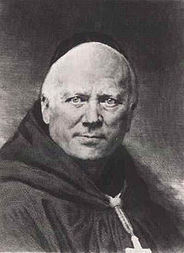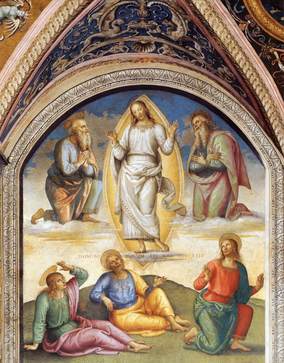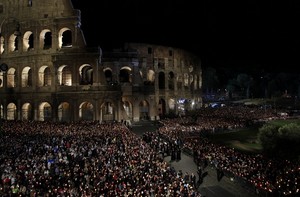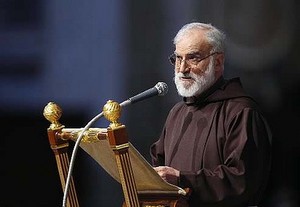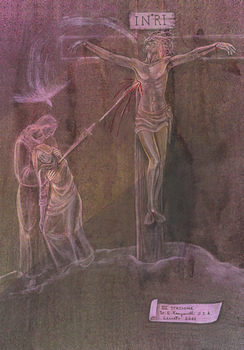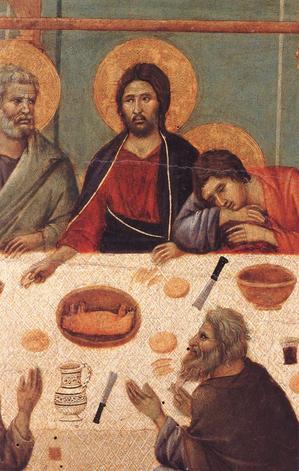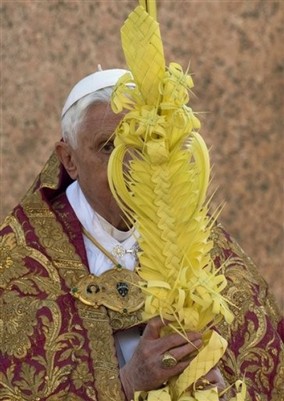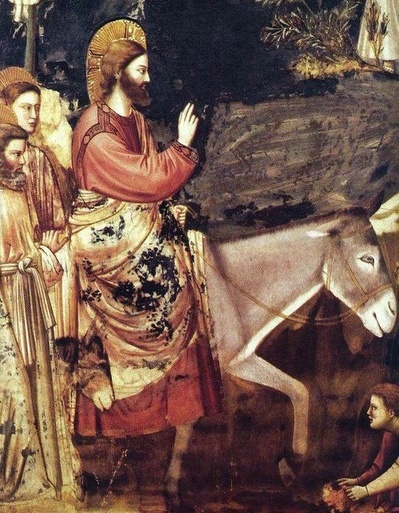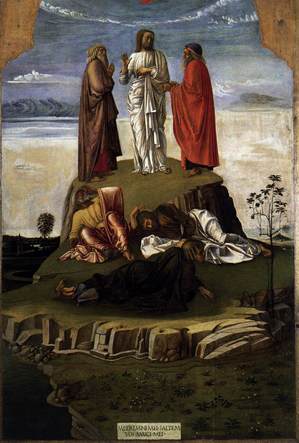
The Pope’s lenten message for the Church is rooted in the Letter to the Hebrews by which he develops three aspects of Christian life: concern for others, reciprocity and one’s holiness. As he says at the start, Hebrews tells us to have confidence in, trust in, Jesus who is our high priest. The presentation of the message is made by Cardinal Robert Sarah.
Lent begins February 22 with the imposition of ashes beginning a 40 day season of fasting, prayer and almsgiving. In some segments of the Church, spiritual preparations have begun with observing the preparatory Sundays –the pre-Lent– whereby Christians begin engaging more and more in acts of penance. The Church recommends a gradual acceptance of penance rather than a full scale plunge. One of my favorite narratives in the Gospel is the Transfiguration of Christ. Here Giovanni Bellini does a terrific job in developing my Catholic imagination in helping me to focus on Christ rather than myself. With the assistance of Pope Benedict’s lenten message we can help grace become more and more part of our own humanity whereby we are transfigured from doing sinful things to doing things of true Charity.
“Let us be concerned for each other, to stir a response in love and good works”
(Hebrews 10:24)
Dear Brothers and Sisters,
The Lenten season offers us once again an opportunity to reflect upon the very heart of Christian life: charity. This is a favourable time to renew our journey of faith, both as individuals and as a community, with the help of the word of God and the sacraments. This journey is one marked by prayer and sharing, silence and fasting, in anticipation of the joy of Easter.
This year I would like to propose a few thoughts in the light of a brief biblical passage drawn from the Letter to the Hebrews: “Let us be concerned for each other, to stir a response in love and good works”. These words are part of a passage in which the sacred author exhorts us to trust in Jesus Christ as the High Priest who has won us forgiveness and opened up a pathway to God. Embracing Christ bears fruit in a life structured by the three theological virtues: it means approaching the Lord “sincere in heart and filled with faith” (v. 22), keeping firm “in the hope we profess” (v. 23) and ever mindful of living a life of “love and good works” (v. 24) together with our brothers and sisters. The author states that to sustain this life shaped by the Gospel it is important to participate in the liturgy and community prayer, mindful of the eschatological goal of full communion in God (v. 25). Here I would like to reflect on verse 24, which offers a succinct, valuable and ever timely teaching on the three aspects of Christian life: concern for others, reciprocity and personal holiness.
Continue reading Pope urges concern for others, reciprocity and personal holiness for lenten lessons
